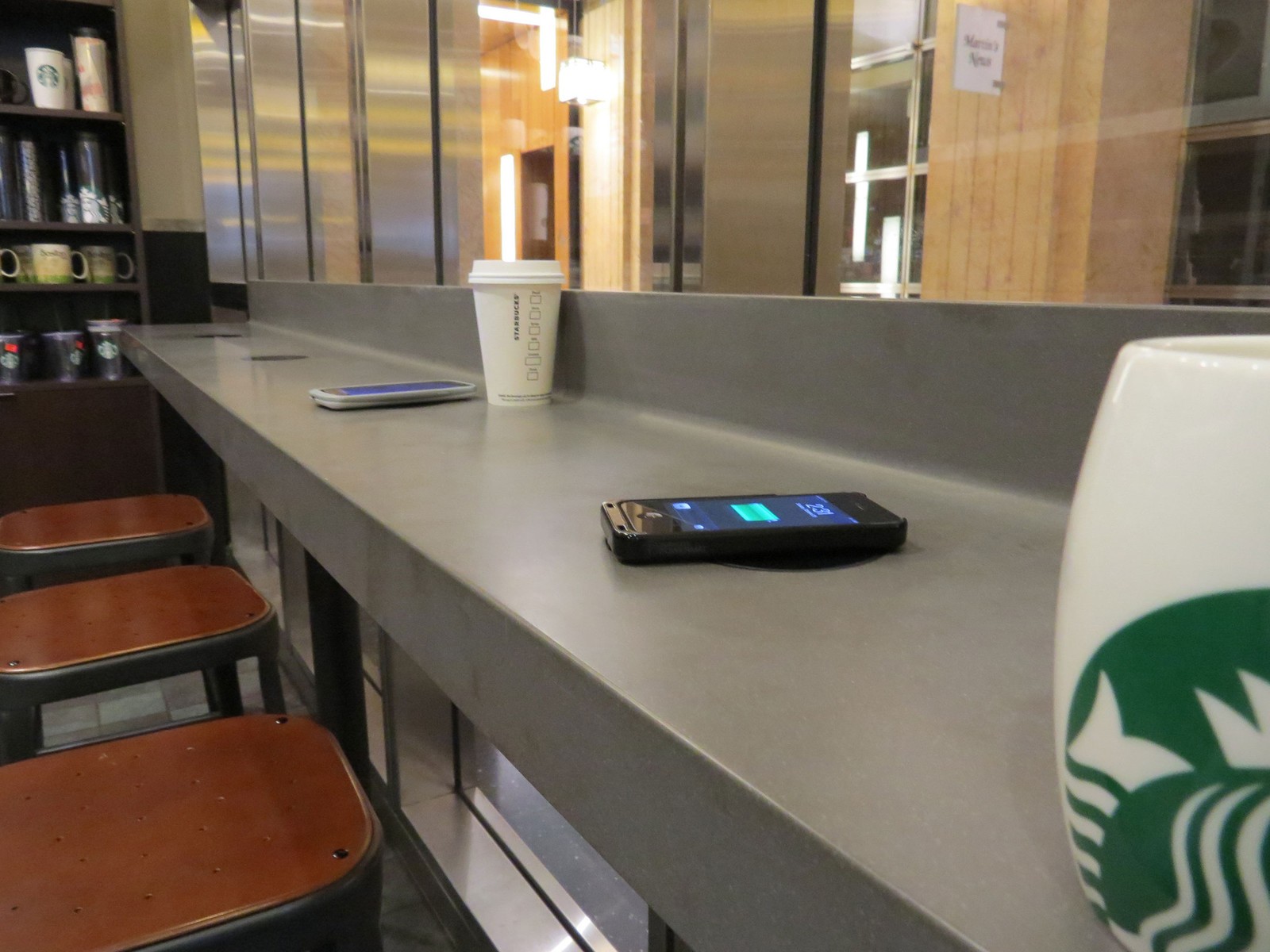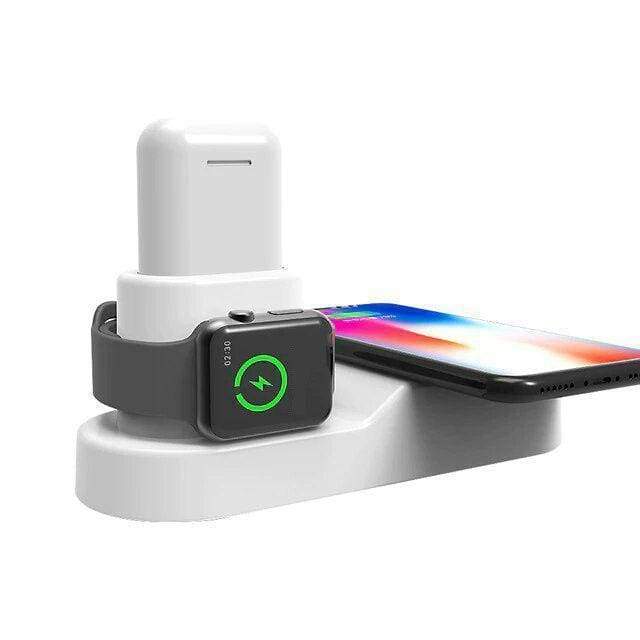What are the advantages of wireless charging and why is the future behind it? Personal experience for 2019
I have been using wireless charging for 1.5 years. And I think that this is the future. Already today, wireless chargers quietly appear in daily life. And in a few years they will be able to become a strong and noticeable competitor to wired charges.

Here are the benefits of wireless charging:
1) Save money. Charging costs less than wire. The cost of a new high-quality wire (or buying a wire urgently) will be more than the cost of wireless charging.
2) Saving forces. It’s more convenient for me to put the phone on charge than to get the wire. Yes, for this you need to put the phone in the center of the wireless charging, so that it starts to charge. But this is easy to do, here I gave measurements of the wireless charging zone.
3) Convenience. If you use different phones at home, then usually everyone has different chargers. QI Wireless Charging is the unified charging standard.
The same logic if you have several gadgets. Wireless headphones, the watch is also charging on a wireless charge. And you can charge several devices at once with multiple coils.

4) Simplification of life. Where to put wireless charging and charge the phone? Where the phone is not in use .
If you put the charge near the bed, in the workplace, in the kitchen, in the car, and place the phone on the platform when it is not in use, the phone will always be charged.
That is, without making any effort to charge the phone - it will always be charged.
The same daily activities will result in an always charged phone.
10 years ago wifi in hotels was considered a convenient feature. Now is a necessary thing.
2 years ago, payment via NFC was a novelty and was almost never used. Now - almost every second payment in Russia is made contactlessly.
In the near future - wireless charging will be in all new phone models, hotels, restaurants, cars, tables.
For example, you can take England. In hotels, hostels, chain restaurants are already wireless charging. Now there are about 5,000, but the number of places with exercises is actively growing in France, Germany and the United States. Even in Russia there are several network institutions that also charge themselves.

A map of wireless chargers in England on the left, on the right is a map of pubs. The potential is huge :)
The technology is not yet 100% working. There is still the potential for improving it (increasing the charging zone to 2-3 cm, power up to 20 W and some other commercial improvements for charging the masses of the market), but now the advantages of such charging outweigh the minuses.
In a few years, the lack of wireless charging will be equal to the lack of wifi in the hotel today - you do not even stay at this place.
Update articles:
In the comments, opinions were written about low efficiency, danger to humans and other terrible things.
Therefore, here are links to articles
1) Efficiency of wireless charging
2) About the need for accurate hit of 1v1 charging
3) About interference to other devices - there is no supporting information. It is unclear how charging creates any interference.

Here are the benefits of wireless charging:
1) Save money. Charging costs less than wire. The cost of a new high-quality wire (or buying a wire urgently) will be more than the cost of wireless charging.
2) Saving forces. It’s more convenient for me to put the phone on charge than to get the wire. Yes, for this you need to put the phone in the center of the wireless charging, so that it starts to charge. But this is easy to do, here I gave measurements of the wireless charging zone.
3) Convenience. If you use different phones at home, then usually everyone has different chargers. QI Wireless Charging is the unified charging standard.
The same logic if you have several gadgets. Wireless headphones, the watch is also charging on a wireless charge. And you can charge several devices at once with multiple coils.

4) Simplification of life. Where to put wireless charging and charge the phone? Where the phone is not in use .
If you put the charge near the bed, in the workplace, in the kitchen, in the car, and place the phone on the platform when it is not in use, the phone will always be charged.
That is, without making any effort to charge the phone - it will always be charged.
- keep the phone not under the pillow, but near the bed
- put not on the seat in the car, but in the phone holder
- put not just on a table near the computer, but on a stand
The same daily activities will result in an always charged phone.
Why do I think that this is the future?
10 years ago wifi in hotels was considered a convenient feature. Now is a necessary thing.
2 years ago, payment via NFC was a novelty and was almost never used. Now - almost every second payment in Russia is made contactlessly.
In the near future - wireless charging will be in all new phone models, hotels, restaurants, cars, tables.
For example, you can take England. In hotels, hostels, chain restaurants are already wireless charging. Now there are about 5,000, but the number of places with exercises is actively growing in France, Germany and the United States. Even in Russia there are several network institutions that also charge themselves.

A map of wireless chargers in England on the left, on the right is a map of pubs. The potential is huge :)
The technology is not yet 100% working. There is still the potential for improving it (increasing the charging zone to 2-3 cm, power up to 20 W and some other commercial improvements for charging the masses of the market), but now the advantages of such charging outweigh the minuses.
In a few years, the lack of wireless charging will be equal to the lack of wifi in the hotel today - you do not even stay at this place.
Update articles:
In the comments, opinions were written about low efficiency, danger to humans and other terrible things.
Therefore, here are links to articles
1) Efficiency of wireless charging
2) About the need for accurate hit of 1v1 charging
3) About interference to other devices - there is no supporting information. It is unclear how charging creates any interference.
